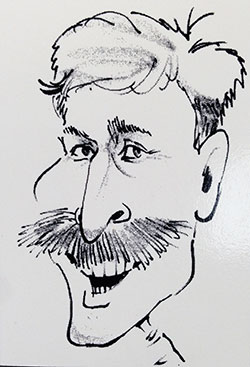 My children had such great ideas. They were so good that I thought they would grow up to be famous inventors. My one son dreamed of inventing the perfect time machine, one that would whisk him briefly back to 1975 so he could buy Microsoft stock 11 years before it went public. My other son wanted to create the world’s first invisible windshield wiper, which, by the way, is a real product these days. And here I hoped they would grow up to be professional ball players where the real money was.. Sadly they learned that just saying something did not make it so.
My children had such great ideas. They were so good that I thought they would grow up to be famous inventors. My one son dreamed of inventing the perfect time machine, one that would whisk him briefly back to 1975 so he could buy Microsoft stock 11 years before it went public. My other son wanted to create the world’s first invisible windshield wiper, which, by the way, is a real product these days. And here I hoped they would grow up to be professional ball players where the real money was.. Sadly they learned that just saying something did not make it so.
Through their groundbreaking work as children, I can make an important distinction here. The time machine would be an invention. The windshield wipers, in contrast, would be an innovation. Often we use these words interchangeably but since part of my blog is to educate as well as entertain you, I thought we should visit this important difference.
Inventions are the creation of something entirely new. The inventors of Bubble Wrap, Alfred Fielding and Marc Chavannes, were originally trying to make a 3D plastic wallpaper, which was a failure. Innovation is the continued improvement of an invention. The upside-down ketchup bottle earned its inventor Paul Brown $13 million.
Neither have any more value than a child’s bright idea without an entrepreneur to pursue them and bring them to life. In an episode of the Twilight Zone many years ago, an inventor locks himself in his laboratory to focus on new ideas. After many years, he comes out to share his ideas (TV, computers, etc.) with mankind, only to learn that while he was isolated, entrepreneurs had already manufactured the same inventions and were selling them to consumers.
That episode was a lot scarier when I was watching it when I was 8 years old. But the point is that just coming up with an idea, does not create sales or jobs. Only entrepreneurs can do that. Entrepreneurs go beyond the laboratory and manage to do the magic of taking an invention or innovation and wrapping a business model around it. Almost everything we touch daily was first invented and then innovated to create value in our lives.
Being an innoventor (a word I just invented) is easy when compared to being the entrepreneur. Whoever said, “If you build a better mousetrap the world will beat a path to your door” never had an idea for a better mousetrap. If so, then that person would have had to wait in line behind 4,400 other patents at the U.S. Patent Office for better versions of a mousetrap. According to David Burkus, author of the Myths of Creativity, only 20 designs have ever been developed into a commercially viable mousetrap and the one still most used is the one that was designed in 1899.
It’s not easy to get a new product to market. Ask people what they think of your idea and you will usually hear the words, “it’s a good idea but ________.” Suggest a new idea at the office and you are likely to be stuck on a committee for the next six months being judged by it.
Almost every state and community maintains that innovation is in their nature. But is it really? Do they provide technical assistance for inventors and innovators? Do they support the creative industries? Do they sponsor Maker Faires and maker spaces? Do they encourage co-working spaces in small communities? Are they strategic partners with accelerators, incubators and commercial kitchens? Do they assist in promoting local products unique to their community? Do they produce toolkits that bring ideas to life?
If you can answer yes to all of these questions, then you must be an innoventive community.
Schools, communities, and states should be supporting the power of ideas to improve lives and stimulate economies. Those ideas will inspire and provide opportunities for youth and adults that will lead to inventions that become problem-solving related businesses.
Inventing makes humans incredible; innovation drives economic growth. They both require technical assistance, business architects and inspiration. The prophetic science fiction writer Arthur C. Clarke said, “Any sufficiently advanced technology is indistinguishable from magic.” I still believe both my sons will one day combine their magical skills and become inventrepreneurs and I can say, “I knew them when they were just an inventor…”
- Maury

